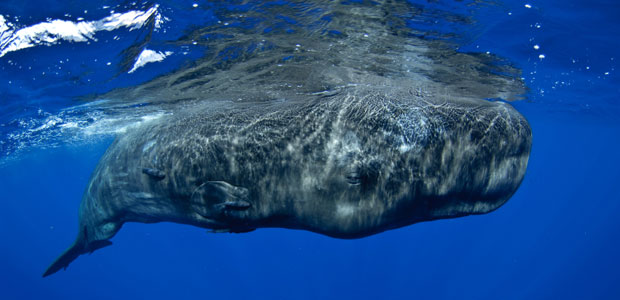Advertisement
Wildlife Wednesday: Sperm Whale
This Wildlife Wednesday, learn about the amazing sperm whale—Moby Dick’s famous whale that may have more to do with your daily beauty routine than you think. Habitat: They live in oceans all over the world—from polar regions to tropical areas. Sperm whale trivia The sperm whale gets its name from its large head, which is … Continued

This Wildlife Wednesday, learn about the amazing sperm whale—Moby Dick’s famous whale that may have more to do with your daily beauty routine than you think.
Habitat: They live in oceans all over the world—from polar regions to tropical areas.
Sperm whale trivia
- The sperm whale gets its name from its large head, which is filled with an oily fluid called spermaceti. Although scientists used to believe that this fluid was sperm, they now believe that the fluid helps with the whales’ buoyancy; however, this is still not well understood.
- Sperm whales have the largest brain out of any creature that lives on earth—or, as experts believe—the largest brain out of any creature that has ever lived on earth.
- Because whales are mammals, they need to come up to the surface to breathe. Sperm whales can hold their breath for up to an hour and a half at a time!
- They can weigh up to 45 tonnes.
- Sperm whales eat many types of fish, but their favourite food is squid.
- Females and their offspring live in groups called pods of up to 20 whales. Males are more solitary.
- Just like bats, sperm whales use echolocation to help find their way around.
Why they’re threatened
The sperm whale was classified as endangered in 1970. More than 40 years later, it is still in danger of becoming extinct.
Climate change
Research has shown that female sperm whales have lower rates of conception after being exposed to uncharacteristically warm sea temperature. Become an eco-activist and help fight climate change.
Perfume
Is there sperm whale byproduct in your beauty cabinet? Sperm whales produce a sticky substance in their gut that, when vomited, is used in commercially produced perfume manufacturing. Other than the “ick” factor, this process is controversial, as it uses a byproduct of an endangered species. Plus, vegans may not be aware that their perfume contains an animal byproduct.
Although generally the substance is collected from beaches, researchers say that in extreme circumstances, whales have been killed to extract the substance. They fear that this expensive substance is so tempting that illegal poaching is a potential threat to whales.
Recently, researchers from the University of British Columbia have uncovered a gene in balsam fir trees that may lead to the manufacturing of commercial perfumes sans sperm whale vomit. In the meantime, however, opt for pure essential oils.
Other threats
Other threats include noise pollution that interferes with whale communication, entanglement in nets and other debris, pollution, and even collision with ships.
Looking for more Wildlife Wednesday posts?
Check out these past posts:





